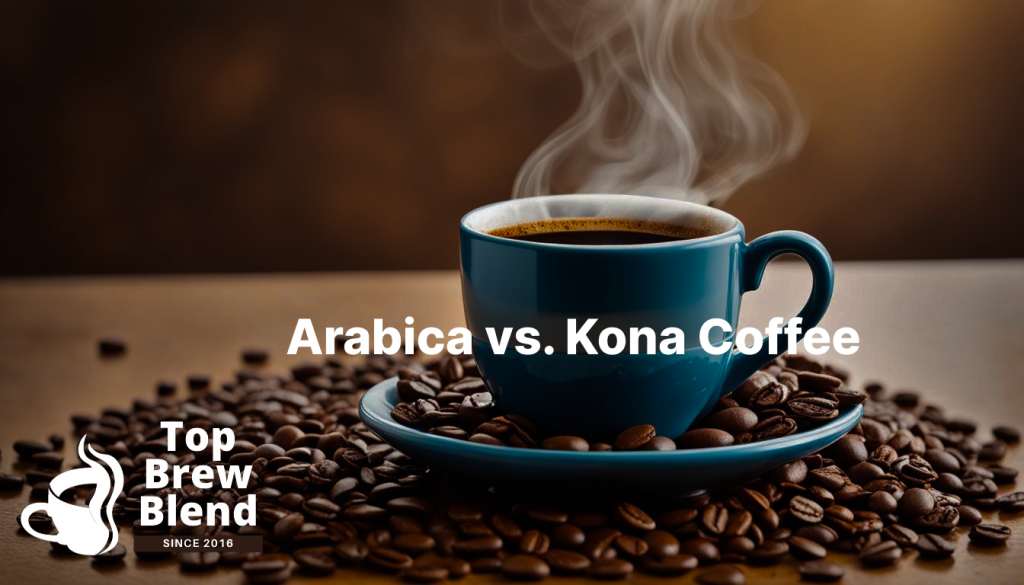Difference between arabica and Kona coffee
Arabica and Kona coffee are two of the most popular coffee varieties in the world. While both are Arabica beans, they have unique flavor profiles and growing conditions that set them apart. In this article, we will unravel the secrets that make Kona coffee and Arabica true legends in the world of coffee.
Origins and history play a significant role in the nuances of coffee. Kona coffee is grown in the Kona region of Hawaii, while Arabica beans have been cultivated in Ethiopia for centuries. The history and distinctive qualities that set these beans apart make them highly sought after by coffee connoisseurs.
Growing conditions and cultivation also play a significant role in the flavor profiles and sensory characteristics of coffee. Arabica plants typically grow at higher altitudes and are more susceptible to disease and pests, making them more expensive to cultivate. Kona coffee, on the other hand, is grown in the nutrient-rich volcanic soil of Hawaii, which gives it a unique flavor profile. Understanding the differences between these two coffee varieties is essential for coffee lovers who want to explore the world of coffee.
Key Takeaways
- Arabica and Kona coffee are both Arabica beans, but they have unique flavor profiles and growing conditions that set them apart.
- Origins and history play a significant role in the nuances of coffee, and understanding the differences between these two coffee varieties is essential for coffee lovers who want to explore the world of coffee.
- Growing conditions and cultivation also play a significant role in the flavor profiles and sensory characteristics of coffee.

Origins and History
Kona Coffee Origin and Cultivation
Kona coffee originates from the Kona Districts of the Big Island of Hawaii. The cultivation of coffee in this region dates back 150 years. The island of Hawaii’s volcanic soil and ideal climate provide the perfect conditions for cultivating high-quality coffee beans. Kona coffee is a type of Arabica bean grown in the Kona region. It is widely recognized as a prolific producer of quality Arabica coffees. The Kona Coffee Belt is one of the largest coffee-growing regions on the planet.
Arabica Coffee: From Ethiopia to the World
Arabica coffee has a long and storied history. It is believed to have originated in the highlands of Ethiopia, where it was first discovered in the 9th century. The energizing effects of coffee soon spread across the globe, and by the 16th century, it was being cultivated in Yemen. From there, it spread to other parts of the world, including Europe and the Americas.
Arabica coffees are widely considered to be the best-tasting coffee beans. They have a complex flavor profile that includes notes of fruit, chocolate, and nuts. Arabica beans contain around 1.2% to 1.5% caffeine, which is less than Robusta beans.
In summary, Kona coffee and Arabica coffee have different origins and histories. Kona coffee is a type of Arabica bean grown in the Kona region of Hawaii, while Arabica coffee has a long history that dates back to the highlands of Ethiopia. Both Kona and Arabica beans are known for their quality and complex flavor profiles.
Growing Conditions and Cultivation
The Unique Terroir of Kona Coffee
Kona coffee is cultivated in the Kona Coffee Belt, located on the north end of the Big Island, which is one of the largest coffee-growing regions in the world. Kona coffee benefits from a unique climate and environment for growing exceptional coffee. The region’s favorable volcanic soil and unique climate provide the ideal growing conditions for coffee plants to thrive. The coffee is cultivated at elevations ranging from 800 to 2500 feet, which is considered the ideal altitude for coffee production. The coffee plants benefit from a rich, well-drained soil and temperatures between 15-24°C (59-75°F). These conditions result in a coffee with a unique flavor profile that is highly sought after by coffee connoisseurs worldwide.
Arabica Coffee’s Preferred Environments
Arabica coffee is the world’s most widely grown coffee variety, and it is grown in various regions worldwide, each with its own climate and soil composition. Arabica coffee plants thrive in environments with temperatures between 15-24°C (59-75°F) and rainfall between 1,200-2,200mm per year. The coffee plants are susceptible to pests and require regular attention to maintain their health and productivity. Arabica coffee’s flavor profile is influenced by the growing conditions, and coffee from different regions can have vastly different flavor profiles.
In summary, the unique terroir of Kona coffee and the growing conditions in which it is cultivated result in a coffee with a distinct flavor profile. Arabica coffee, on the other hand, is grown in various regions worldwide and has a wide range of flavor profiles and characteristics.
Flavor Profiles and Sensory Characteristics
Tasting Kona Coffee
Kona coffee is known for its premium-quality and distinctive flavor notes. The flavor profile of Kona coffee is shaped by the rich volcanic soil and microclimates found in the Kona region of Hawaii. The beans of Kona coffee have a low acidity and subtle nutty aroma. The taste of 100% Kona coffee is smooth, fruity, and sweet with a hint of caramel. These flavor notes are derived from the unique growing conditions and the careful processing of the beans.
When tasting Kona coffee, one can expect a complex and well-balanced flavor profile. The taste is not overpowering but rather has a delicate and refined taste. The flavor notes of Kona coffee are highly sought after by coffee enthusiasts who appreciate the quality and taste of a premium-quality coffee.
The Diverse Flavors of Arabica
Arabica coffee is known for its complex flavors and lower caffeine content. The taste profile of Arabica coffee can vary depending on the region where it is grown. Arabica coffee is grown in various regions worldwide, each with its own climate and soil composition, leading to a wide range of flavor profiles and characteristics.
The fruity sweet and complex flavors of Arabica coffee make it a popular choice among coffee lovers. The taste of Arabica coffee is highly dependent on the growing conditions and the processing of the beans. The beans of Arabica coffee are carefully harvested and processed to preserve their superior quality.
In comparison to Robusta coffee, Arabica coffee has a lower caffeine content and a smoother taste. The taste of Arabica coffee is highly sought after by coffee enthusiasts who appreciate the quality and taste of a premium-quality coffee.

